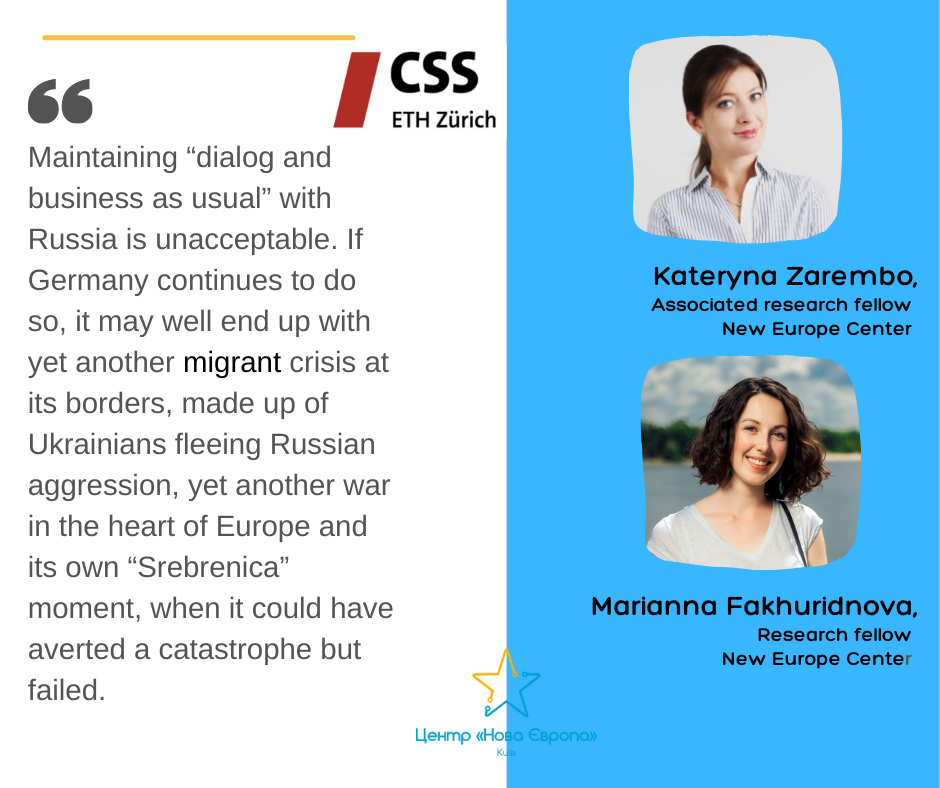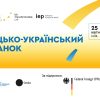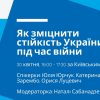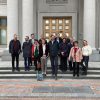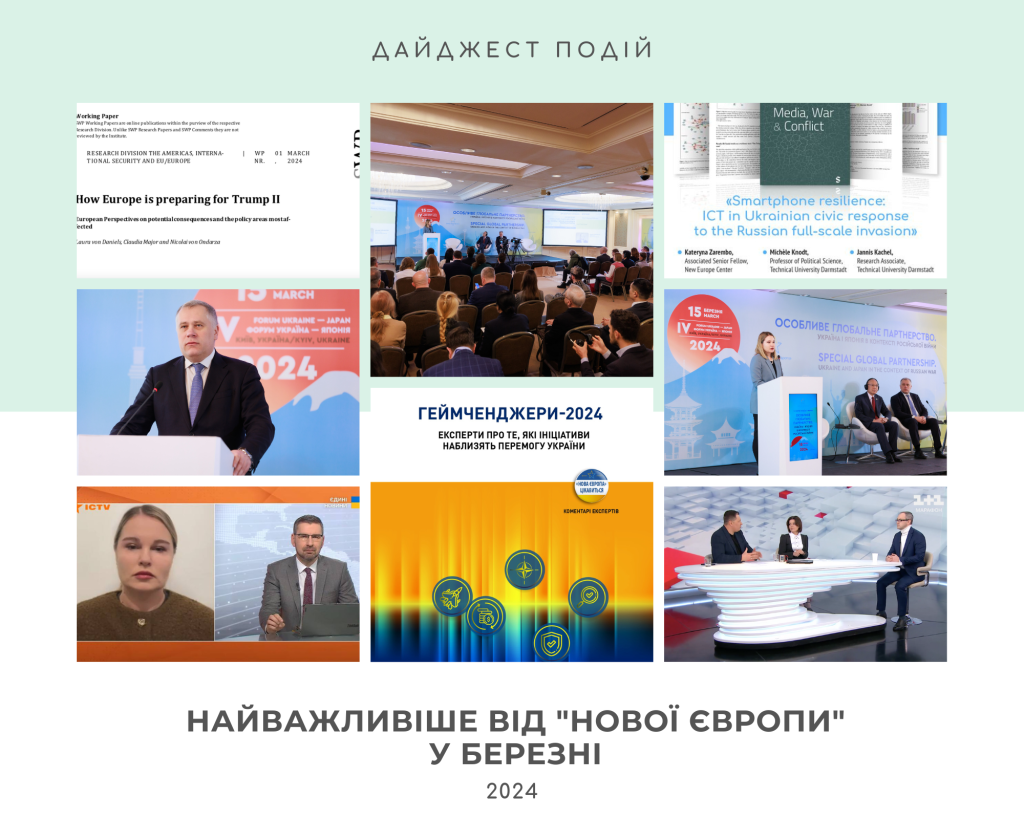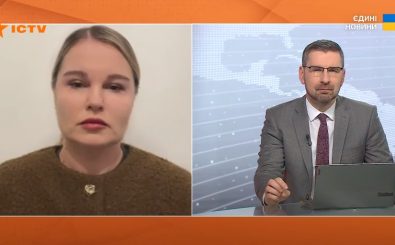Kateryna Zarembo, New Europe Center Associate Fellow and Marianna Fakhurdinova, New Europe Center Research Fellow authored a new article, which was published in German journal Ukraine-Analysen (DGO) in German and Russian Analytical Digest (Center for Security Studies) in English.
The full text in English is available here.
The full text in German is available here.
In their paper the authors provide the recommendation to German policy-makers on how to take a more active role in solving the Russian crisis around Ukraine.
The article also presents the key results of the previously conducted research “Morphological Analysis of Narratives of the Russian-Ukrainian Conflict in Western Academia and Think-Tank Community” available via the link.
Since the Second World War, Germany has pursued a pacifist foreign policy, driven by the ideas of nonviolence and dialog, with a view to promoting peace on the European continent. This is especially true regarding German policy toward Russia, where the German position is reinforced by a sense of historical guilt and responsibility on the one hand and business interests on the other.
This moment in history, when Russia is demanding a revision of the Euro-Atlantic security architecture, threatening Ukraine by force, is a test for Germany of whether it has actually learned the lessons of the past and can play a leading and uniting role in the European Union. This peculiar German mixture of pacifism, anti-Americanism, (selective) historical guilt and desire for dialog with Russia no matter how autocratic, can work against German intentions. The German position is all the more outstanding since it stands in stark contrast to those of the US, Great Britain and other Ukraine allies.
It is significant that such a deviation is generally characteristic not only of politicians but also of scholars and policy analysts. This is indicated by the research on how Western representatives of academia and the think-tank community in 7 countries name, interpret and suggest resolving the conflict in and around Ukraine (Koval et al. 2022). Conducted by a group of Ukrainian authors who closely examined approximately a thousand publications over a six-year period, the research shows that while scholars and policy analysts from Poland, the US and Great Britain hold Russia responsible for its aggression against Ukraine and call for deterrence (more aid to Ukraine, tougher sanctions on Russia, etc.), those from Germany (and France) advocate for dialog with Moscow and appeasement.
However, the time for “dialog only” is up. Dialog and appeasement of Russia have not worked: after eight years of hybrid aggression, on 21 February 2022 Russia openly and blatantly recognized the puppet “republics” in Ukraine’s East, which it itself created in 2014, and stationed its regular armed forces into the sovereign parts of Ukraine – territory of Donetsk and Luhansk oblasts. There is high probability that very soon Russia will try to expand the occupied territories by force, with its army encircling roughly three quarters of Ukraine’s border. Any compromises with Russia at the cost of Ukraine’s sovereignty will only signal to Putin that he can ask for more. By taking a tepid stance on the Russian aggression, Germany is breaking European unity and denying Ukraine’s right to self-defense, granted by the UN Charter. How else can one characterize Berlin’s veto of Ukraine’s purchases through a NATO procurement agency and ban on Estonia’s (or any other third state’s) providing Ukraine with German-produced arms, while it has been supplying dual-use goods to Russia despite (!) the EU sanctions?
It is time for the Scholz administration to live up to the German value of peacemaking – only in this case pacifism means action in defense of peace and democracy. First, Germany should consider Ukraine an equal and a partner; our research showed that a number of scholars and policy analysts, not to mention particular politicians and high-ranking military officials, frame Ukraine “indefinitely” in their papers, i.e., rather as in the background of relations between Russia and the West than as a subject of international relations. In addition, no academic or policy paper of those analyzed frame Ukraine as a partner of Germany or the West, which illustrates its objectification in the German discourse. Shifts have been apparent, however, in the array of recent publications in prominent German media calling for Germany’s military support for Ukraine and a more proactive role in deterring Russia.
Nevertheless, the deeds and rhetoric of policy-makers remain paramount. In our view, some of the following measures could work: Germany should firmly side with Ukraine in the Minsk process, where any political steps can only take place after a stable security environment is established. Tough new EU sanctions on Russia should be introduced. Germany should also unblock arms sales to Ukraine through the NATO procurement agency, since Ukraine needs these weapons for defense, not for an offensive. Nord Stream-2 pipeline should be shelved. Finally, a support fund for German investors in Ukraine should be established, which would make Ukraine safer and more attractive in the eyes of German entrepreneurs. Ukraine’s economy badly needs support in view of the continuous Russian threat, which Russia will always use to blackmail Ukraine and the West.
When our research was conducted two years ago, one of the top recommendations by German policy analysts – to have a balanced position toward Russia and keep the door open for dialog with it – could have been understandable. At present, however, maintaining “dialog and business as usual” with Russia is unacceptable. If Germany continues to do so, it may well end up with yet another migrant crisis at its borders, made up of Ukrainians fleeing Russian aggression, yet another war in the heart of Europe and its own “Srebrenica” moment, when it could have averted a catastrophe but failed.
About the authors
Dr Kateryna Zarembo is an associate fellow at the New Europe Center, Kyiv and lecturer at the National University of Kyiv-Mohyla Academy. Marianna Fakhurdinova is a research fellow at the New Europe Center, Kyiv. They are both coauthors of the analysis, quoted in this contribution:
Nadiia Koval, Volodymyr Kulyk, Mykola Riabchuk, Kateryna Zarembo & Marianna Fakhurdinova (2022) Morphological Analysis of Narratives of the Russian-Ukrainian Conflict in Western Academia and Think-Tank Community, Problems of Post-Communism, DOI: 10.1080/10758216.2021.2009348



